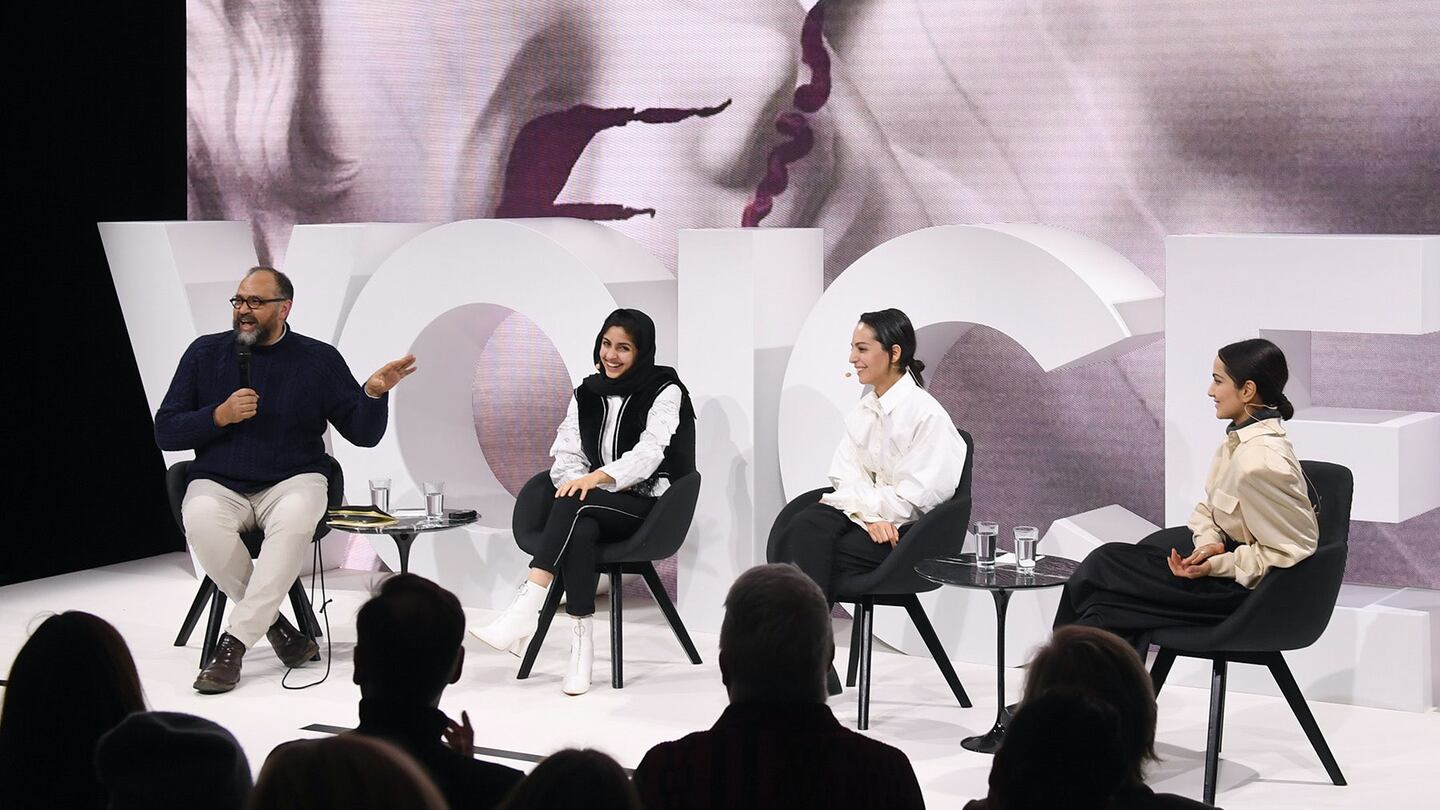
The Business of Fashion
Agenda-setting intelligence, analysis and advice for the global fashion community.

Agenda-setting intelligence, analysis and advice for the global fashion community.

To subscribe to the BoF Podcast, please follow this link.
OXFORDSHIRE, United Kingdom — During an impassioned speech on stage at BoF VOICES 2019, Iranian-American activist Hoda Katebi exclaimed, "the world is fucking on fire right now."
Her powerful impromptu message — which holds particular poignancy in light of the recent US airstrike that killed Iran’s senior military leader, General Qassem Soleimani — implicated the fashion industry in a global economy that both questions and upholds oppressive systems: “Fashion is inherently political,” she argued.
The founder of The Blue Tin Production Co-Op — billed as the first clothes manufacturing cooperative run by female refugees and immigrants in the US — called out top fashion players who, as they align with marginalised groups, simultaneously fail to commit to their underlying ethos.
ADVERTISEMENT
Katebi called out brands like Nike for co-opting the hijab as part of their athleticwear range, despite allegations made in mid-2019 that the company had sourced some of their materials from Muslim Uighur internment camps in China.
“Silence is complacency,” Katebi said. “We allow fashion right now to reduce, simplify and completely annihilate the movements and identities that we have been working on for decades.”
To illustrate her message, Katebi called on everyone connected to the industry to reflect on their production and consumption practices and to question what it “means for a product of violence to be rubbing off on our skin every single day.”
Fashion is inherently political.
Unpacking Iran’s economic and political degradation, Katebi also spotlighted the crippling effect UK and US government-imposed sanctions have on Iranian citizens: “Many of our countries are complicit in what is happening right now.”
Sisters Shiva and Shirin Vaqar, a Tehran-based design duo, joined Katebi to discuss how Iran’s mandatory dress code forces local fashion brands to operate underground in a bid to avoid government-imposed shutdowns.
“We face lots of sanctions and restrictions. Sourcing fabrics, finding production houses, convincing them to make our pieces… We have problems sending products outside Iran, [we don’t have] FedEx, banking is on lock-down," Shiva Vaqar said.
The political and social obstacles they face running their brand has, however, enabled the Vaqar sisters to adopt creative solutions to the promotion of their designs on social media, as well as how they ship their garments to clients across the globe.
“It’s very hard for us, not just as emerging designers but as Iranians,” said Shiva Vaqar, “[but] we still try and make it.”
ADVERTISEMENT
To learn more about VOICES, BoF's annual gathering for big thinkers, visit our VOICES website, where you can find all the details on our invitation-only global gathering.
To contact The Business of Fashion with comments, questions, or speaker ideas please e-mail podcast@businessoffashion.com.
This week’s round-up of global markets fashion business news also features Latin American mall giants, Nigerian craft entrepreneurs and the mixed picture of China’s luxury market.
Resourceful leaders are turning to creative contingency plans in the face of a national energy crisis, crumbling infrastructure, economic stagnation and social unrest.
This week’s round-up of global markets fashion business news also features the China Duty Free Group, Uniqlo’s Japanese owner and a pan-African e-commerce platform in Côte d’Ivoire.
Affluent members of the Indian diaspora are underserved by fashion retailers, but dedicated e-commerce sites are not a silver bullet for Indian designers aiming to reach them.